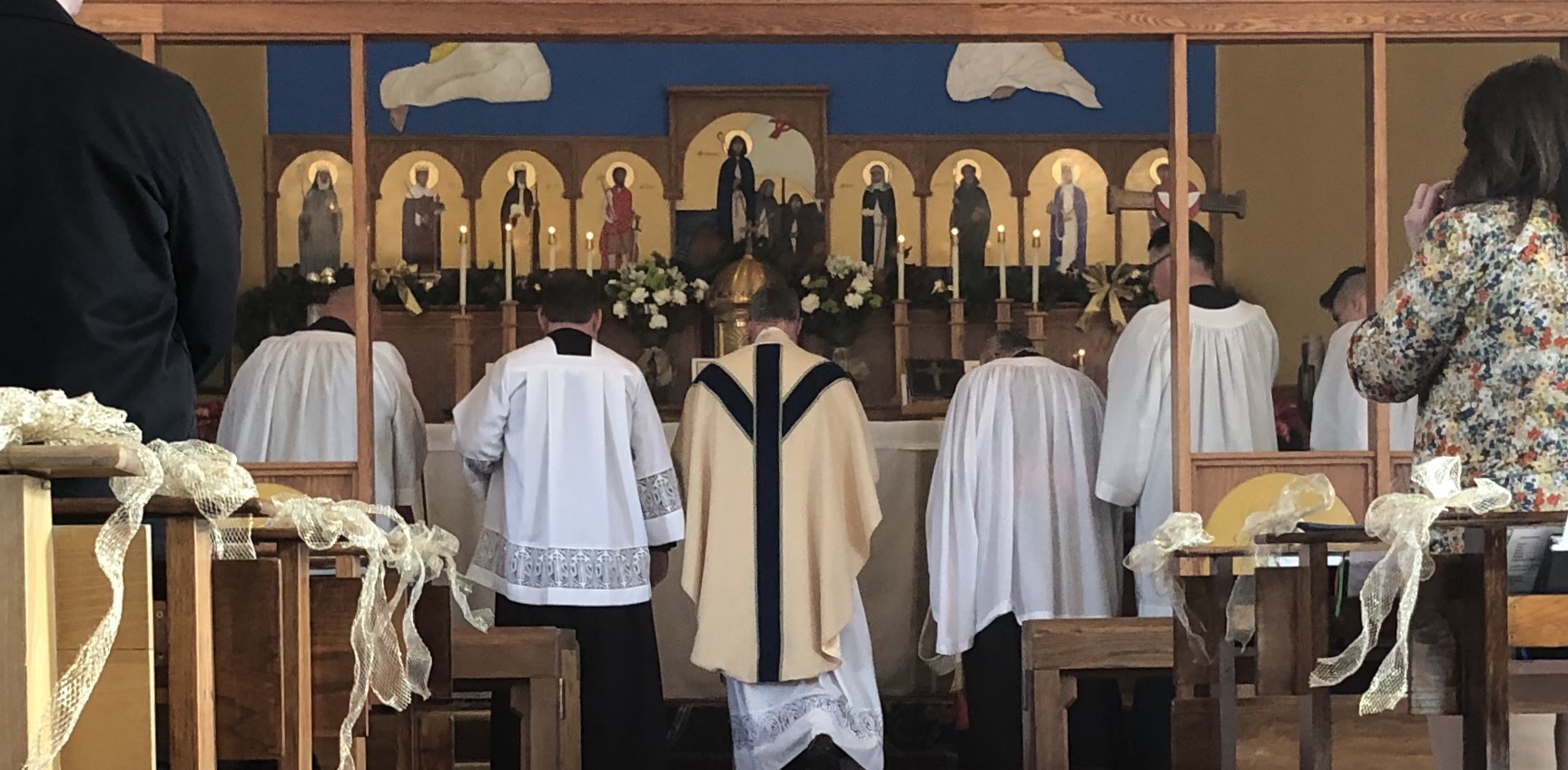Today we celebrate the feast of St Tikhon, Tikhon patron of our Vicariate, patron of the rite we use, a rite which, while not originating with him, was one with which he was well familiar, ardent in his desire to draw Episcopalians into the unity of the Church, so exploring the possibility of using a rite with which they were familiar – a rite filled with potential for drawing western people to Orthodoxy.
For that was his great vision; that was his great desire. Born in Russia in 1865, he became a priest-monk, before being consecrated as Bishop of Alaska, which had originally been a part of the Russian empire, only being acquired by the United States in 1867 – something that Tikhon saw as a great opportunity; from Alaska, he was determined to bring Orthodoxy to the rest of America, moving his see first to San Francisco, then to New York.
And, like the great Apostle Paul he was ready to be ‘as a Jew to the Jews, as a Gentile to the Gentiles, becoming all things to all people that by some means he might save some.’ He realized that Orthodoxy is not, emphatically not a rite, that as Fr Lev Gillet expresses it, it is ‘not a rite, but embraces all rites,’ including a rite – again to use Fr Lev’s phrase, a rite ‘proper to the west,’ one for which western people feel a natural affinity.
And this is the thing. To draw people to Orthodoxy by the use of what is congenial to them. This was the strategy of St Tikhon and St Paul, but, even more importantly, it was the mission strategy of Our Lord Jesus Christ, the Good Shepherd who adapted Himself to His sheep – what the Fathers call His synkatabasis, a word in the past often translated as condescension, but really meaning His tailoring of Himself to our needs, our needs as a race, our needs as individuals, like a parent stooping down to be face-to-face with his children, speaking to them in a way best adapted to their capacities.
For what He wants is our salvation! And that, therefore, is what the church must also want, the salvation of all, by any possible means, not imposing hardships on people, nor burdens, but making it as easy as possible for them to embrace the faith and profess it in the church, including in this the provision of a western rite, a western rite for western people.

